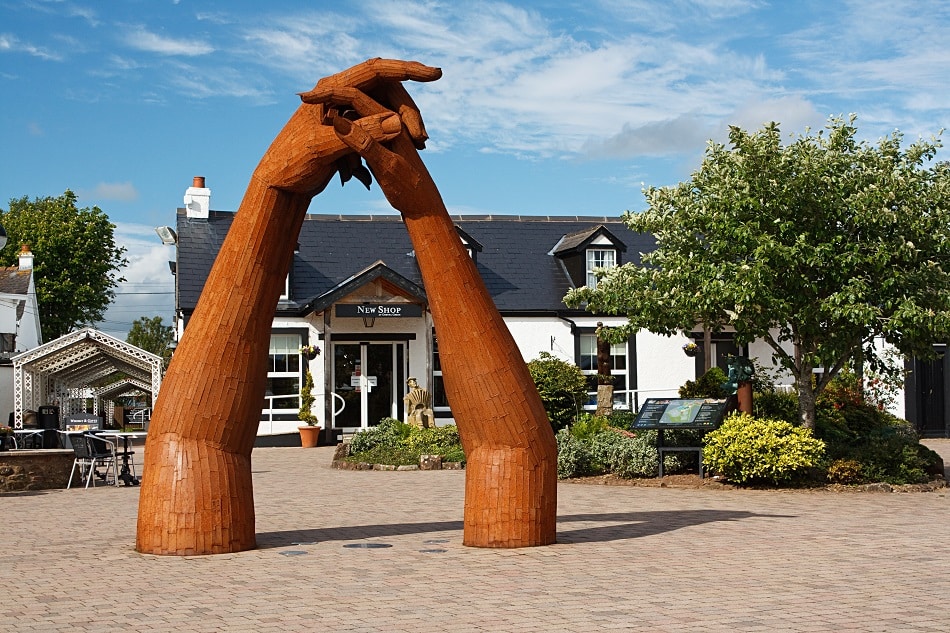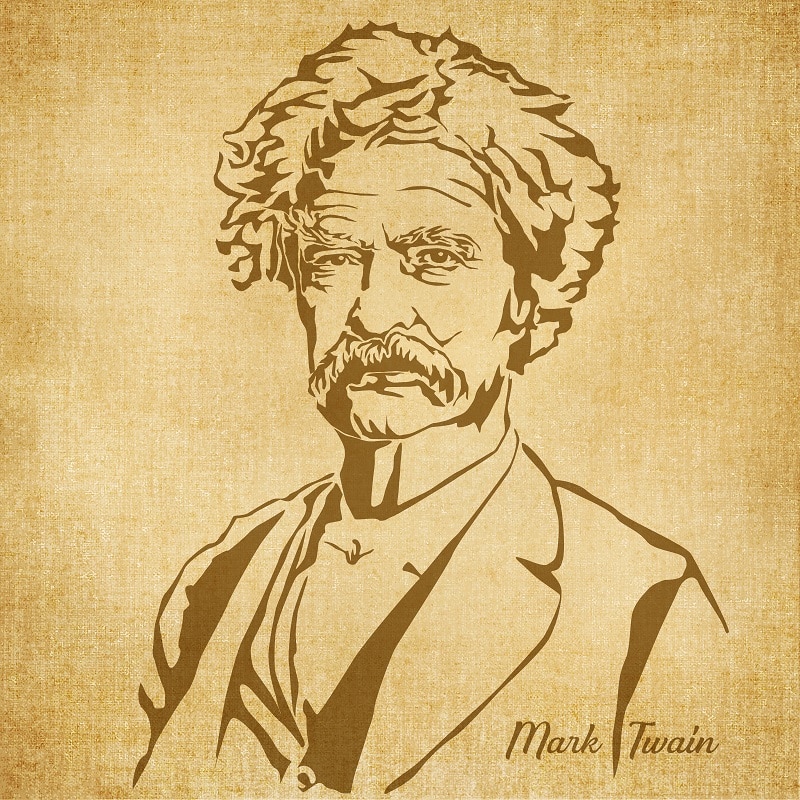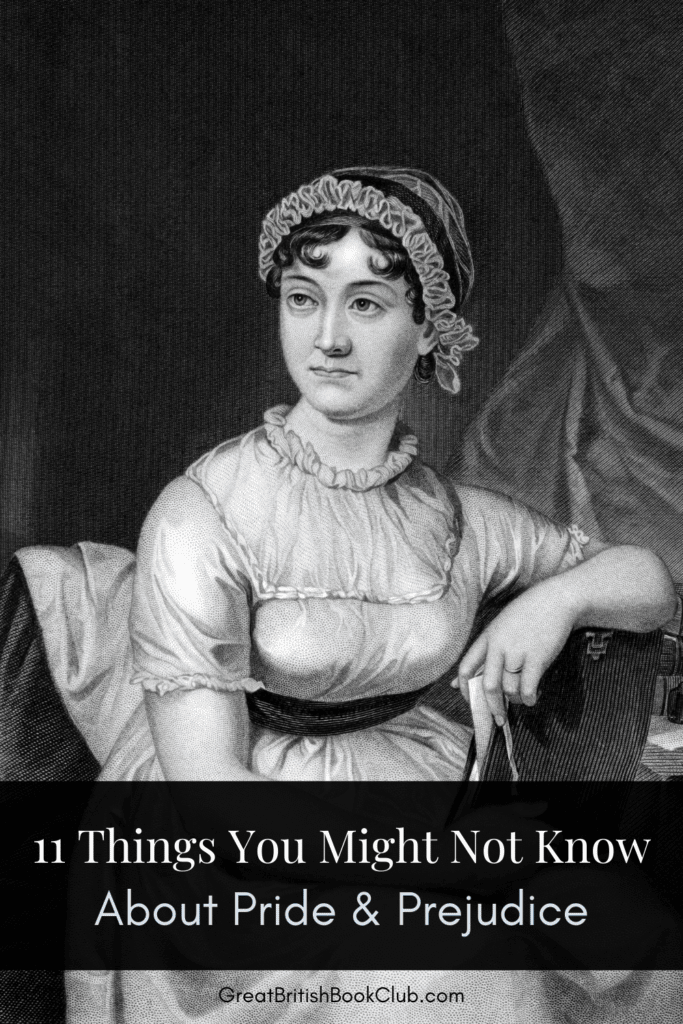11 Things You Might Not Know About Pride & Prejudice
In some cases, we earn commissions from affiliate links in our posts.
You won't find many serious British literature or British TV fans who haven't either read the book or watched at least ONE adaptation of Jane Austen's classic, Pride and Prejudice. Below, we take a look at some of the interesting facts and connections surrounding Jane Austen, Pride & Prejudice, and its numerous adaptations.
Ms. Austen Never Got Her Happy Ending

While Elizabeth Bennet got her happy ending, Ms. Austen remained a spinster until her death. Though she once accepted a proposal from Harris Bigg-Wither, heir to a neighboring estate, she changed her mind the next day. She was in a dire financial situation and his money and property must have surely seemed like the answer to her problems, but the very thought of marrying him made her miserable.
While it's lovely to know she was a woman of principle, it's also terribly sad to know she has brought joy to so many, yet she found herself in such an unenviable position. You can read more about her life and relationships in John Halperin's book, Jane Austen's Lovers: And Other Studies in Fiction and History from Austen to Le Carre.
Pride & Prejudice Has an Unusual Connection With Mouse Urine

Researchers at the University of Liverpool disovered a new pheremone in male mouse urine back in 2010 – and they named it “darcin”, after Mr. Darcy. One of the researchers described the pheremone, saying.
“Contact with darcin consistently doubled the time spent near a male's scent. Touching darcin with the nose also made females learn that particular male's odour, subsequently tripling the time spent near to the airborne scent of that individual male but showing no attraction to other males.”
Austen Made Little on Pride & Prejudice
Published just a few years before her death, Austen sold the copyright to Pride & Prejudice for a mere £110 (though she had requested £150). That's roughly $10,000 in today's money, and it's actually quite a bit more than a lot of first-time novelists earn today – but it's a pittance compared to how much money the book has earned over the years.
It Also Has a Connection With Rat Urine…
Every serious Pride & Prejudice fan will know what we mean when we reference “the lake scene”. One of the most memorable scenes in recent British television history, it's when Mr. Darcy jumped into the lake for a quick swim, only to wander back up to the house all soggy and run into Miss Elizabeth Bennet.
You might think Colin Firth had to dive into the lake numerous times to get that scene – but actually, he never even entered it. During the filming of the 1995 adaptation of Pride & Prejudice, the production company's insurers required a stuntman to do the dive. They were concerned Firth might get Weil's disease from rat urine in the water.
Somehow, the idea of a man drenched in water and potentially diseased rat urine makes the whole thing a bit less sexy…but there you have it.
Pride & Prejudice Wasn't Always Called Pride & Prejudice
When Ms. Austen wrote the book at the tender age of 21, she called it First Impressions. It wouldn't be published until more than a decade later – after some revisions and a new name.
Screenwriter Andrew Davies Spent Some Time Contemplating Mr. Darcy's Erection
Even though Pride & Prejudice is totally wholesome, we all know what's simmering just beneath the surface – good old-fashioned lust, however constrained and British it might seem.
In the 1995 television adaptation, screenwriter Andrew Davies had some saucy direction for actor Colin Firth. You know that scene where Elizabeth Bennet arrives all rosy-cheeked and disheveled after a long walk? Here's what he had to say about it in a 2003 interview:
Pride and Prejudice is all about sex and money, about young people with pumping hormones. Darcy is supposed to marry this sickly aristocrat, but as soon as he sees keen-witted, rosy-cheeked Elizabeth Bennet panting from a walk, he gets an instant erection.
Gretna Green was Basically the Scottish Village Version of Las Vegas

In the book, Lydia writes to her sister saying, “I am going to Gretna Green and if you cannot guess with who, I shall think you a simpleton, for there is but one man in the world I love, and he is an angel. I should never be happy without him, so think it no harm to be off.”
Gretna Green is a tiny village just over the English border in Scotland. Scotland has long been a bit looser with their requirements for weddings (even today, they offer more options than England). In years past, the very young would run off to Scotland because they were able to marry at a younger age without parental consent.
Gretna Green marriages traditionally took place in the blacksmith's shop, with a hammer striking the anvil to make the union official. Some people still go to Gretna to get married, but it's quite tourist-y now. My co-editor and I stopped through on the way down to York after getting engaged in Scotland, but we didn't get married – though perhaps we should have, given that we're now stuck postponing until it's safe for older relatives to travel!
Jane Austen Never Published Under Her Own Name While Alive
Pride & Prejudice was credited as “by the author of Sense & Sensibility”, and Austen's books were generally credited as “By a Lady”. Some weren't even published during her lifetime.
After she died, her brother shared her identity with the world. It's a shame she never had the joy of knowing what her work has meant to people around the world.
No One is Completely Sure How Austen Died
Even today, there are numerous theories about the mystery illness that killed Jane Austen at the young age of 41. Cancer, tuberculosis, and a rare hormonal disorder have all been put forth as possibilities. Most recently, it was suggested that she may have died of arsenic poisoning.
Austen's vision declined significantly in her later years, and the British Museum recently had three pairs of her glasses examined. They found a pattern of increasing strength, suggesting serious decline – possibly due to cataracts caused by arsenic poisoning. Since arsenic was relatively common in both medicines and water supplies, it's not so far-fetched. You can read their full post here.
Even Austen Wasn't Sure Pride & Prejudice Was Serious Enough

It's fairly well-known that Mark Twain was NOT a fan of Austen's work. He once wrote:
I often want to criticize Jane Austen, but her books madden me so that I can’t conceal my frenzy from the reader; and therefore I have to stop every time I begin. Every time I read Pride and Prejudice I want to dig her up and beat her over the skull with her own shin bone!
What a lot of people don't know, though, is that Austen herself had a lot of doubts. In her memoir she wrote, “The work is rather too light, and bright, and sparkling. It wants shade; it wants to be stretched out here and there with a long chapter of sense, if it could be had.”
It's not surprising, really. Just think about the levels of imposter syndrome in many modern women, and then imagine a woman who lived in a time when women were treated as liabilities and inferior creatures, hardly capable of the things we modern women take for granted. The fact that she was able to overcome those doubts and publish at all is a great credit to her strength of character.
Pride & Prejudice Gets More Than Its Fair Share of Hate
Though many love it, Pride & Prejudice has no shortage of famous detractors. Charlotte Brontë read the book in 1848, saying, “Why do you like Miss Austen so very much? I am puzzled on that point.”
A couple of years later, she wrote:
She does her business of delineating the surface of the lives of genteel English people curiously well … [But] She no more, with her mind’s eye, beholds the heart of her race than each man, with bodily vision, sees the heart in his heaving breast. Jane Austen was a complete and most sensible lady, but a very incomplete and rather insensible (not senseless) woman.
Ralph Waldo Emerson was similarly unimpressed, commenting:
I am at a loss to understand why people hold Miss Austen’s novels at so high a rate, which seems to me vulgar in tone, sterile in artistic invention, imprisoned in their wretched conventions of English society, without genius, wit or knowledge of the world. Never was life so pinched and so narrow … Suicide is more respectable.
Not surprisingly, Virginia Woolf wasn't a fan, either. In a 1932 letter to a friend, she wrote:
Whatever ‘Bloomsbury’ may think of Jane Austen, she is not by any means one of my favourites. I’d give all she ever wrote for half what the Brontës wrote—if my reason did not compel me to see that she is a magnificent artist.
Not Enough Pride & Prejudice Trivia For You?
You're in luck – because there's a card game. It's not cheap, but then again, small-batch games are surprisingly expensive to produce – and this one isn't exactly Monopoly. You can check it out HERE.
Save it to Pinterest!





